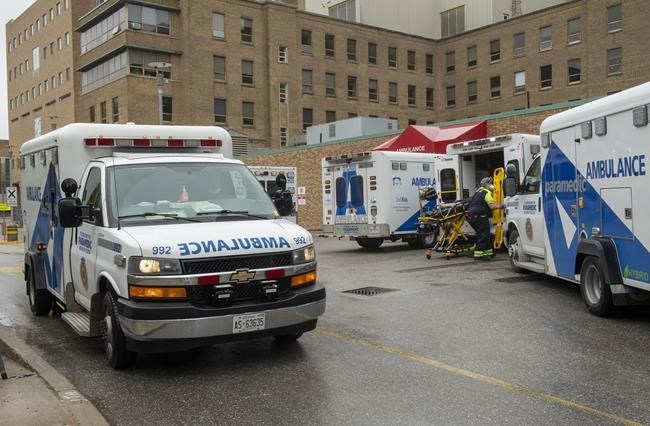TORONTO — A slowdown in new COVID-19 infections across much of the country along with rising vaccination numbers has political and health authorities easing restrictions put in place to curb the pandemic.
In one such key development, Ontario's top public health officer said hospitals could resume non-urgent surgeries and procedures, ending a ban that's been in place since April 20.
Dr. David Williams said daily COVID-19 rates, hospital and intensive care admissions appeared to be trending downward, and some hospitals now have capacity to resume cancelled procedures.
"It is therefore important to make use of this available capacity to limit the long-term impacts on patients awaiting non-urgent care," Williams said.
Authorities estimate the province has a backlog of non-urgent medical procedures in the hundreds of thousands, and Williams said delays in care can lead to poorer health outcomes. The province reported 1,588 new cases of COVID-19 on Wednesday and 19 more related deaths.
Quebec, which expects to lift its curfew by the end of the month, said its hospital admissions had fallen by 18 to 466, while 113 people were in intensive care, a drop of five.
Yukon Premier Sandy Silver said the territory may soon allow up to 20 people to gather indoors and as many as 100 outside for cultural events and weddings, as long as precautions are taken.
More than 76 per cent of the territory's eligible residents have had their first vaccine shot and 67 per cent their second shot.
One province still struggling, Manitoba, reported 402 new infections and four more deaths.
It said it had transferred two COVID-19 patients to Thunder Bay in northwestern Ontario. Shared Health, which co-ordinates clinical care, said critical care capacity was at significant risk amid near-record levels of demand.
Alberta, also with a high but declining infection rate, had 908 new cases and six additional deaths. It said it would be safe to start sending students back to schools next week.
British Columbia reported eight more deaths on Wednesday and 521 new cases. Health officials said they would set out their vaccination plan for youth, aged 12 to 17, on Thursday.
Quebec, which reported 584 new cases of COVID-19 and eight more deaths attributed to the novel coronavirus, estimated slightly more than half its residents have received at least one dose of a vaccine.
However, Canadians hoping to drive into the U.S. for a shot could be out of luck.
Unlike Health Canada, the U.S. border agency said it does not consider a vaccine an essential medical service for travel purposes. As a result, Canadian travellers have been denied entry.
"Travel for the sole purpose of obtaining a vaccination is not permissible under current travel restrictions,” an agency spokesman said.
The Canadian Public Health Agency had said it considers a vaccine on referral from a licensed health-care provider in Canada to be essential. That would obviate the need for quarantine on return from the U.S. if the trip was made in a private vehicle and solely for getting the vaccination.
U.S. Congressman Brian Higgins pointed out Wednesday that Canadians have recently been allowed into several states, including North Dakota, Alaska, Washington, and Montana, to receive the vaccine.
In the border city of Windsor, Ont., the head of the regional hospital said there were many examples of crossings for a vaccine despite the U.S. border agency's position.
"That is why this is so political and needs some clarity and leadership," David Musyj said.
Still, with domestic supplies on the rise, health officials in Manitoba said all residents could be fully vaccinated by the end of July. The province is set to start booking second doses on Friday for people with certain underlying medical conditions, then will offer appointments based on availability and when people had received their first dose.
Nationally, almost three-quarters of Indigenous adults living on reserves have now received at least one dose and more than a third have received two, Indigenous Services Minister Marc Miller said on Wednesday. Efforts were underway to vaccinate young people with the Pfizer-BioNTech vaccine, he said.
Health units in Ontario's Peel Region have begun opening up bookings for the Pfizer vaccine to anyone aged 12 and up. The mayor of hard-hit Brampton, Ont., announced the expansion on Wednesday.
"The more people we get vaccinated, the sooner we're going to get back to normal," Patrick Brown said.
Ontario has said it plans to open vaccine booking to those aged 12 and older starting at the end of the month.
This report by The Canadian Press was first published on May 19, 2021.
Colin Perkel, The Canadian Press



